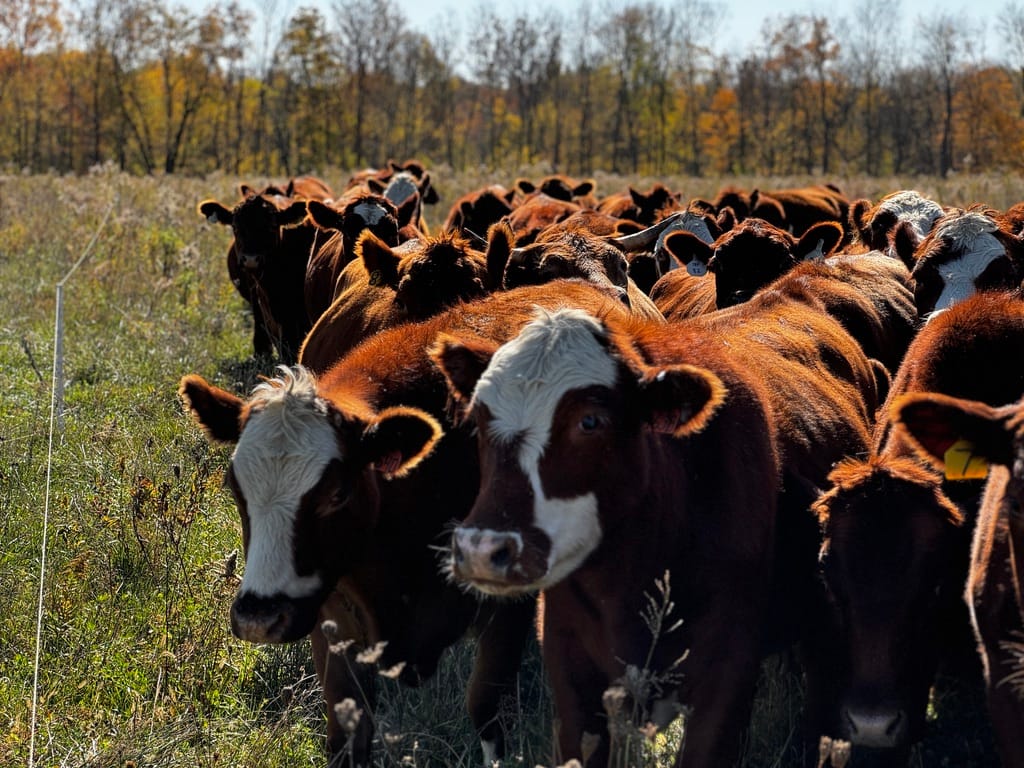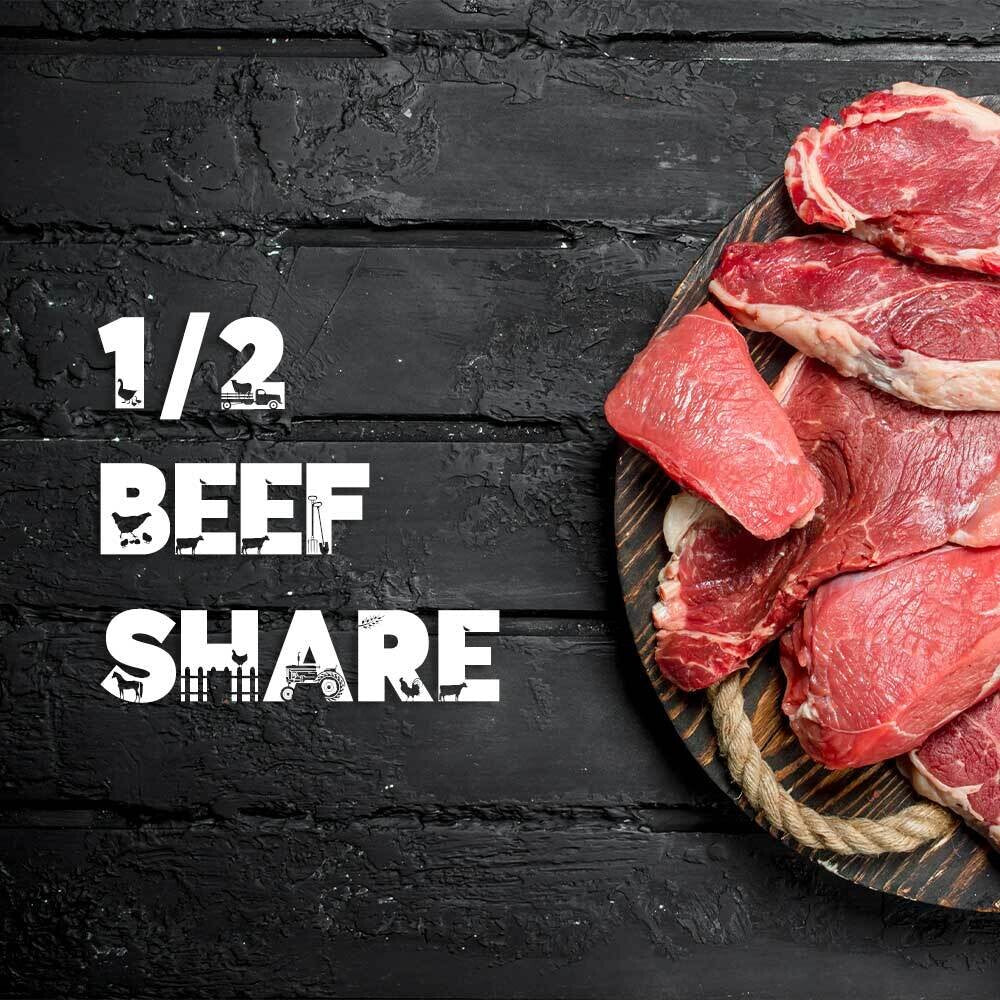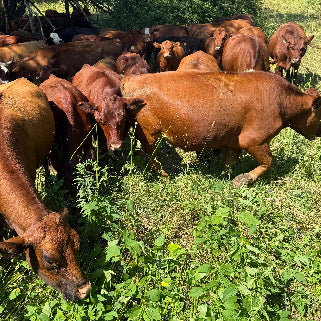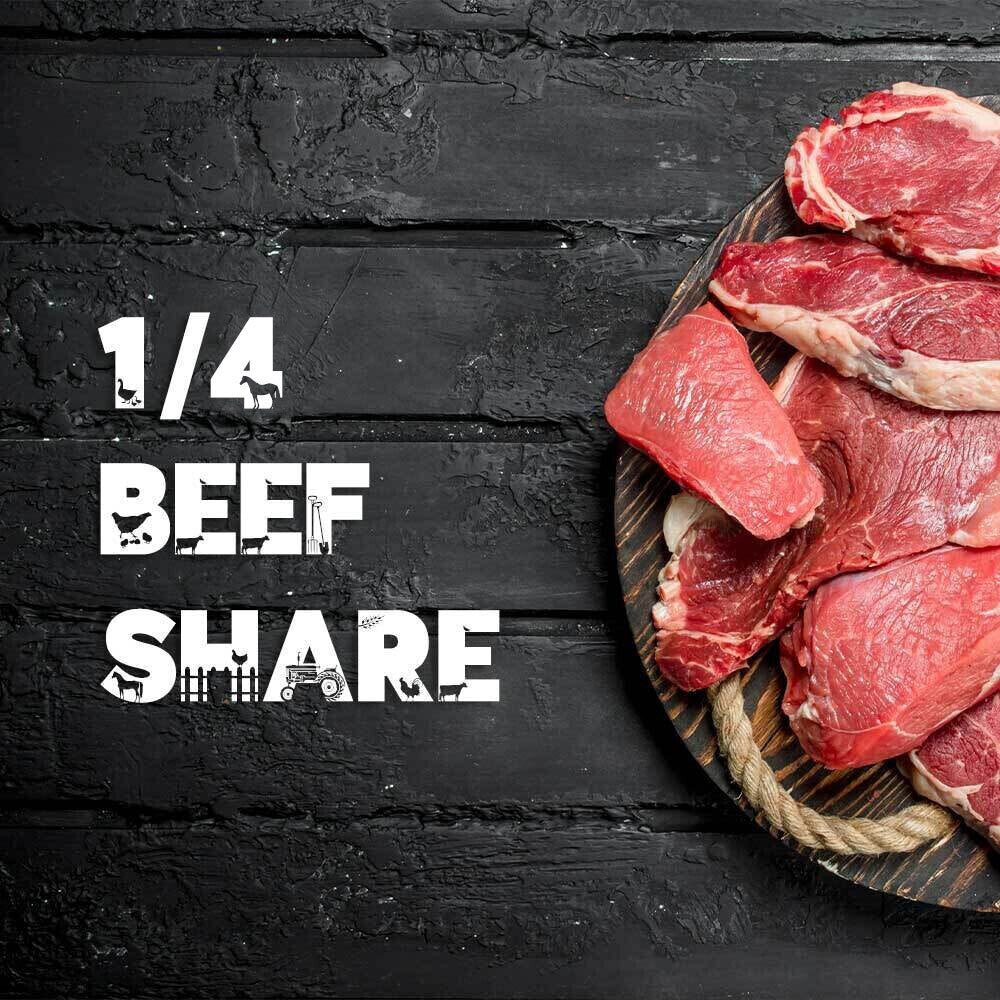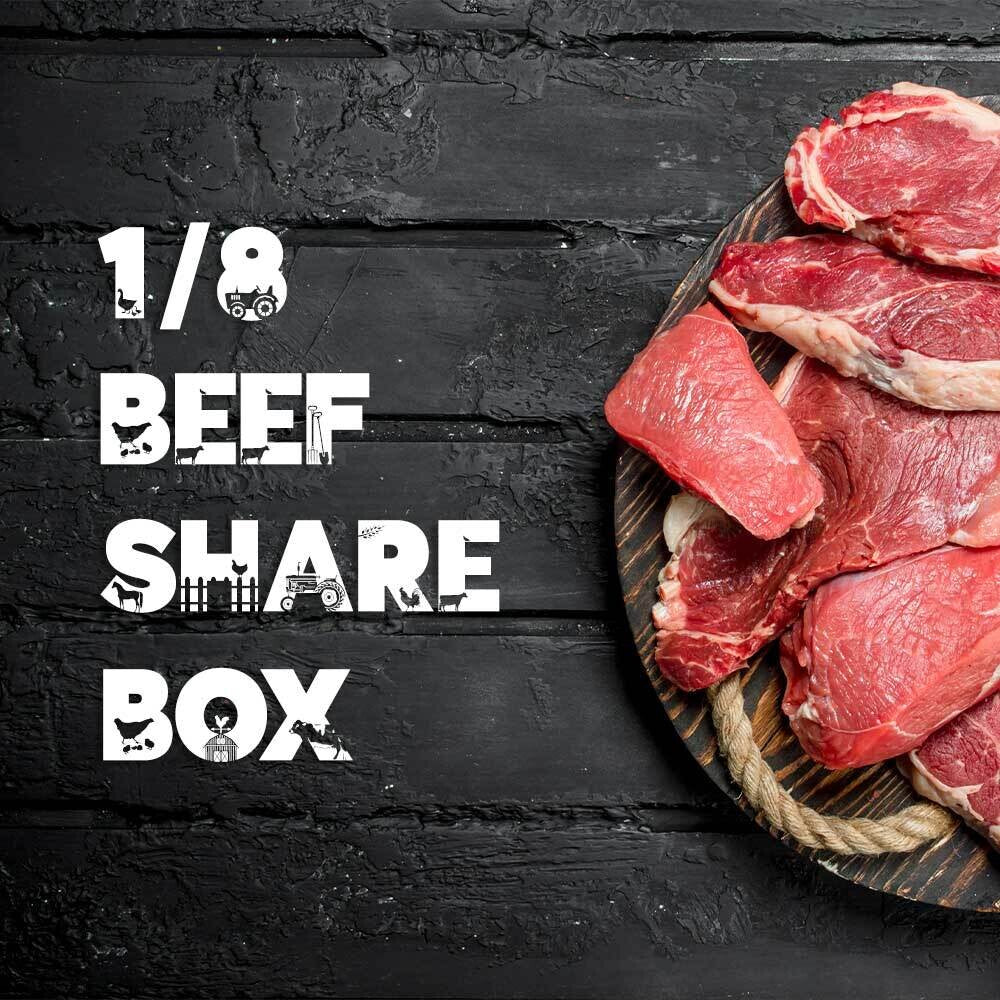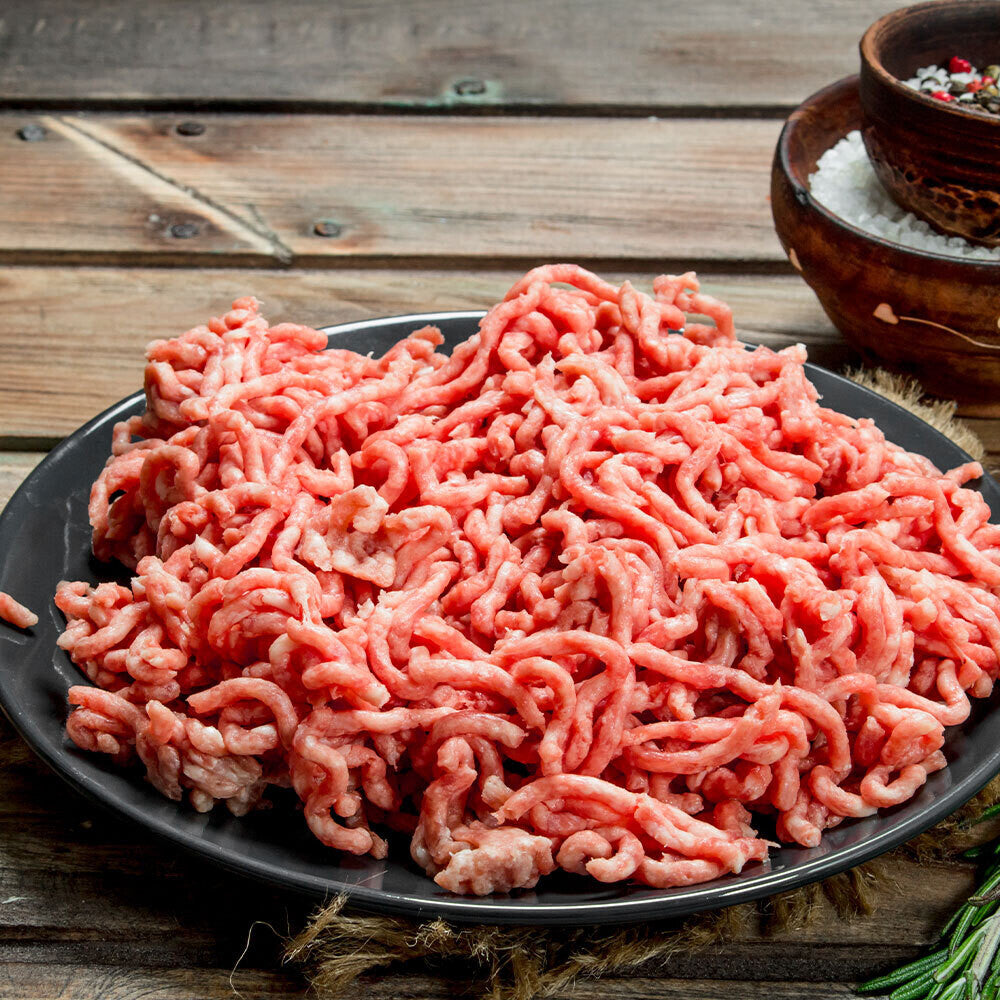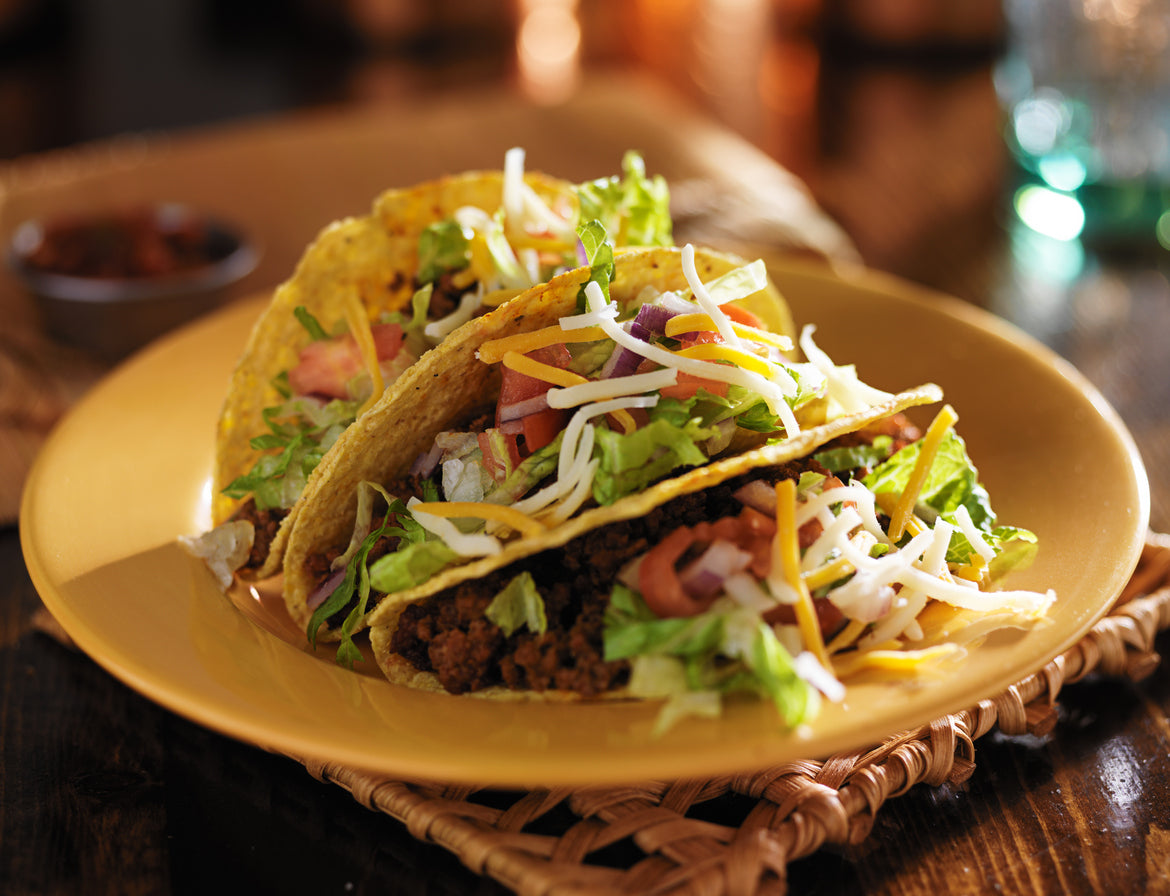
The Perfect First Food: Why Pasture-Raised Ground Chicken is Ideal for Baby-Led Weaning
Introducing your baby to solid foods is an exciting milestone, but it’s also a time to carefully consider what’s best for their health and development.
Nutrient-dense, pasture-raised ground chicken is an exceptional choice for baby-led weaning, providing vital nutrients and peace of mind for parents who value ethical and sustainable farming. With its mild, neutral flavor and soft texture, it’s an approachable first food for babies exploring new tastes. Let’s dive into why this protein-rich food supports your baby’s needs and how regenerative farming practices make a difference.
Why Nutrient Density Matters for Babies
Babies grow rapidly in their first year, requiring a wide range of nutrients to support brain development, strong bones, a healthy immune system, and overall growth. Pasture-raised ground chicken is packed with the key nutrients that infants need:- Protein: Protein is essential for building and repairing tissues, including muscles and organs. Pasture-raised chicken provides high-quality, easily digestible protein that supports your baby’s growth.
- Iron: Babies’ iron stores from birth begin to deplete around six months, making iron-rich foods critical at this stage. Pasture-raised chicken is an excellent source of heme iron, which is more easily absorbed than plant-based iron sources. Adequate iron intake is crucial for cognitive development and preventing anemia.
- Zinc: Zinc plays a vital role in cell growth and a healthy immune system. Chicken is a natural source of zinc, ensuring your baby gets what they need during this critical period.
- B Vitamins: Pasture-raised chicken is rich in B vitamins, including B12, which is essential for brain and nerve development. Vitamin B6 also supports energy metabolism and healthy brain function.
- Healthy Fats: While ground chicken is a lean meat, pasture-raised varieties contain small amounts of healthy fats, including omega-3s, which are important for brain and eye development.
Why Pasture-Raised is Better for Babies
Not all chicken is created equal. Choosing pasture-raised ground chicken ensures that your baby receives the highest quality nutrition while avoiding unnecessary risks.- No Antibiotics or Growth Hormones: Unlike conventional poultry, true pasture-raised chicken is raised without antibiotics, growth hormones, or other drugs. This eliminates potential exposure to harmful residues that could disrupt your baby’s developing microbiome and overall health.
- Higher Nutrient Content: Chickens raised on open pastures consume a natural diet of grasses, seeds, and insects, resulting in meat with higher levels of nutrients like omega-3 fatty acids, antioxidants, and vitamins compared to conventionally raised chicken.
- Cleaner, Safer Meat: Regenerative farming practices prioritize animal welfare and sustainable land management, leading to healthier birds and cleaner meat. Pasture-raised chicken is less likely to harbor harmful bacteria associated with overcrowded, industrial farming conditions.
- Mild, Neutral Flavor: The mild, neutral flavor of pasture-raised ground chicken makes it particularly suitable for babies who are just beginning to explore solid foods. Its gentle taste allows you to pair it with a variety of other nutrient-dense foods, helping your baby adapt to new flavors without being overwhelmed.
- Environmental and Ethical Benefits: By choosing pasture-raised chicken, you’re supporting farming methods that improve soil health, sequester carbon, and respect the natural behavior of animals. These practices not only benefit the environment but also reflect a commitment to providing your baby with food that’s raised responsibly.
How to Introduce Pasture-Raised Ground Chicken for Baby-Led Weaning
- Baby-led weaning encourages self-feeding, allowing your baby to explore textures and tastes while developing motor skills. Ground chicken is an ideal food for this method because of its soft, manageable texture, neutral flavor, and versatility.
- Cooked and Shaped: Prepare the ground chicken by forming it into small, soft patties or meatballs that are easy for your baby to grasp. Avoid adding salt, spices, or other seasonings that may be too harsh for their developing palate.
- Blended or Mashed: For younger babies, cook and blend ground chicken with vegetables like sweet potatoes, carrots, or peas to create a smooth, nutrient-packed puree.
- Pair with Iron-Boosting Foods: To enhance iron absorption, pair ground chicken with vitamin C-rich foods like steamed broccoli, strawberries, or bell peppers.
Why Starting Strong Matters
The foods you introduce during these early months lay the foundation for your baby’s lifelong health. Nutrient-dense options like pasture-raised ground chicken provide more than just essential vitamins and minerals—they also establish a palate for natural, minimally processed foods. Additionally, the peace of mind that comes from knowing your baby’s food is free from antibiotics, hormones, and industrial farming practices is invaluable. By choosing true pasture-raised meat, you’re prioritizing your baby’s health while supporting farming methods that respect animals and the environment.Make the Best Choice for Your Baby
Pasture-raised ground chicken isn’t just food—it’s an investment in your baby’s future. Its superior nutrition, safety, and sustainability, combined with its neutral flavor and soft texture, make it the ideal first food for baby-led weaning. Start your baby on the right path with a diet rooted in health, ethics, and environmental responsibility. If you’re ready to make pasture-raised ground chicken part of your baby’s first meals, explore our selection and discover the difference that truly regenerative farming can make.
Tags:
Previous post
Hawaiian Style Pork Burger Recipe
Next post




